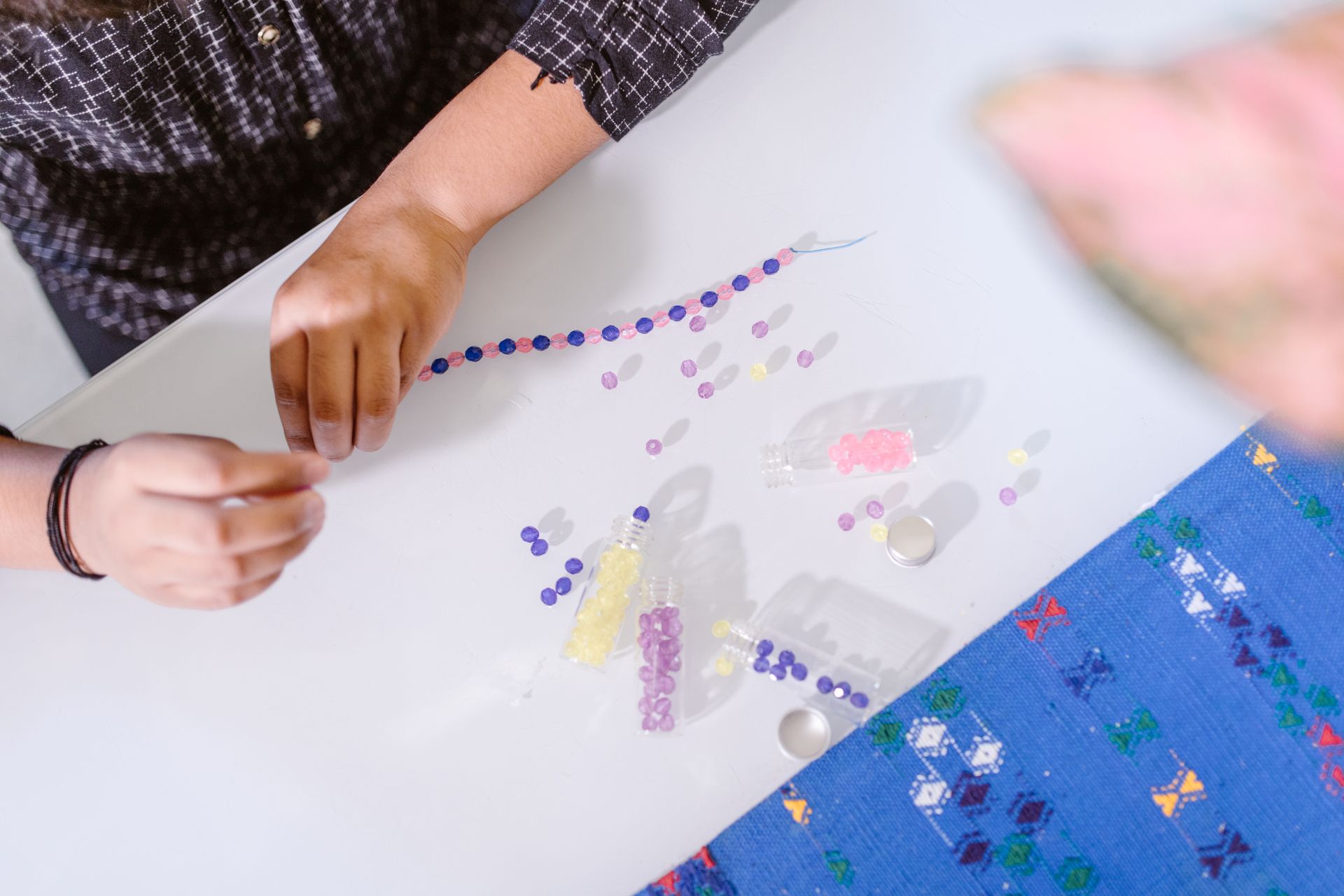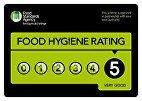Ultimate Guide for New Parents Caring for a Newborn
Ultimate Guide for New Parents Caring for a Newborn

Welcome to Parenthood!
Congratulations on your new bundle of joy! Becoming a parent is a life-changing experience filled with excitement, challenges, and countless precious moments. This guide is your companion, packed with tips, insights, and practical advice to help you navigate the first few months of your newborn’s life. Whether you're a first-time parent or adding to your family, these strategies will support you in creating a nurturing, stimulating, and balanced environment for your baby.
Understanding Newborn Development
First Days and Weeks
Your newborn will undergo rapid development in the first few weeks. Here are some milestones to look forward to:
- 0-1 Month: Recognising voices, focusing on faces, and grasping reflexes.
- 1-2 Months: Beginning to smile, cooing sounds, and stronger head control.
The Importance of Bonding
Bonding with your newborn is crucial for their emotional and psychological development. Some bonding activities include:
- Skin-to-Skin Contact: Helps regulate the baby's heartbeat and temperature.
- Talking and Singing: Encourages language development and recognition of your voice.
- Gentle Touch and Massage: Promotes relaxation and helps with digestion.
Creating a Safe Environment
Safety is paramount in the early days. Ensure your home is newborn-friendly by:
- Baby-Proofing: Secure furniture, cover outlets, and remove small objects.
- Safe Sleeping: Place your baby on their back to sleep in a crib with a firm mattress.
- Temperature Control: Keep the room at a comfortable temperature, avoiding overheating.
Health and Nutrition
Feeding Your Newborn
Feeding is a significant part of your newborn's life. Here’s what you need to know:
- Breastfeeding: Offers ideal nutrition and bonding opportunities. Seek support from lactation consultants if needed.
- Formula Feeding: Ensure you're using a formula that meets your baby's needs. Follow preparation guidelines carefully.
- Feeding Schedule: Newborns typically feed every 2-3 hours. Watch for hunger cues like rooting and sucking.
Healthy Habits
Establishing healthy habits early on is essential for your newborn’s well-being:
- Diaper Changing: Check and change diapers frequently to avoid rashes.
- Bathing: Sponge baths are recommended until the umbilical cord stump falls off.
- Umbilical Cord Care: Keep the area clean and dry to prevent infection.
Recognising Health Issues
It's important to monitor your newborn's health closely. Be aware of common issues such as:
- Jaundice: Yellowing of the skin and eyes, usually resolved with increased feeding.
- Colic: Excessive crying due to digestive discomfort. Consult your paediatrician for solutions.
- Respiratory Issues: Seek medical attention if your baby shows signs of difficulty breathing.
Sleep and Soothing
Understanding Newborn Sleep
Newborns sleep a lot, but often not for long stretches. Here's how to manage:
- Sleep Patterns: Expect irregular sleep cycles of 2-4 hours.
- Day and Night Confusion: Help your baby differentiate by keeping days bright and active, and nights dark and calm.
Creating a Sleep Routine
Establishing a sleep routine can help your baby (and you) get better rest:
- Bedtime Routine: Include calming activities like a warm bath, gentle rocking, and lullabies.
- Consistent Sleep Environment: Use a crib in a quiet, dark room with white noise if needed.
Soothing Techniques
Newborns often need help calming down. Effective soothing techniques include:
- Swaddling: Provides a sense of security and warmth.
- Rocking and Swinging: Mimics the movements your baby felt in the womb.
- Pacifiers: Can help with self-soothing and reduce the risk of SIDS.
Emotional and Social Development
Building Trust and Security
Your newborn relies on you to feel safe and secure. Strengthen this bond by:
- Responding Promptly: Attend to cries and needs to build trust.
- Eye Contact: Helps your baby feel connected and understood.
- Positive Interactions: Smile, talk, and play with your baby to encourage emotional growth.
Early Social Interaction
Even newborns benefit from social interaction. Encourage development by:
- Family Time: Include siblings and other family members in daily activities.
- Gentle Play: Use age-appropriate toys to stimulate your baby's senses.
- Interactive Reading: Simple picture books can captivate and calm your newborn.
Support and Resources for New Parents
Building a Support Network
Parenting is a team effort. Surround yourself with a strong support network:
- Family and Friends: Don’t hesitate to ask for help with household tasks or babysitting.
- Parenting Groups: Join local or online groups to share experiences and advice.
- Professional Support: Seek advice from paediatricians, lactation consultants, and parenting coaches.
Balancing Life and Parenthood
Finding balance as a new parent is challenging but possible with these tips:
- Time Management: Create a flexible schedule to manage your responsibilities.
- Self-Care: Prioritise your own well-being with regular breaks, exercise, and hobbies.
- Partner Involvement: Share parenting duties and support each other emotionally.
Conclusion
You’ve Got This!
Caring for a newborn is a journey filled with joy and challenges. By understanding their developmental needs, providing a balanced diet, fostering emotional and social growth, and establishing healthy sleep habits, you can create a nurturing environment. Remember to build a support network and maintain a healthy balance in your life.
Additional Resources
Keep Learning and Growing
- Books: "What to Expect the First Year" by Heidi Murkoff, "The Happiest Baby on the Block" by Harvey Karp.
- Websites: NHS Choices, National Childbirth Trust (NCT).
- Tools: Feeding trackers, baby monitors, and apps like The Wonder Weeks.
FAQs
Your Questions Answered
- How often should I feed my newborn?
- Newborns typically feed every 2-3 hours. Watch for hunger cues like rooting and sucking.
- What are the best ways to soothe a fussy baby?
- Try swaddling, rocking, using a pacifier, or playing white noise.
- How can I help my baby sleep better?
- Establish a bedtime routine, create a consistent sleep environment, and manage day and night confusion.
- What should I do if my baby shows signs of illness?
- Consult your paediatrician if your baby shows signs of jaundice, colic, or respiratory issues.
- How can I balance my responsibilities as a new parent?
- Use time management techniques, prioritise self-care, and involve your partner in parenting duties.
GLOBAL KIDS DAY CARE LIMEHOUSE
Lascar Wharf Community Centre, Limehouse, London, E14 7FN. | Tel: 0207 001 1210 Email: limehouse@globalkidsdaycare.co.uk
GLOBAL KIDS DAY CARE MILE END
21 Burdett Road, Mile End, London, E3 4TU. | Tel: 0208 980 1706 Email: mile-end@globalkidsdaycare.co.uk
GLOBAL KIDS DAY CARE ALDGATE EAST
52 Old Castle Street, Aldgate East, London E1 7AJ. | Tel: 0203 302 7800 / Mobile: 07823 770035 | Email: aldgateeast@globalkidsdaycare.co.uk
Opening Times: 8am - 6pm

















